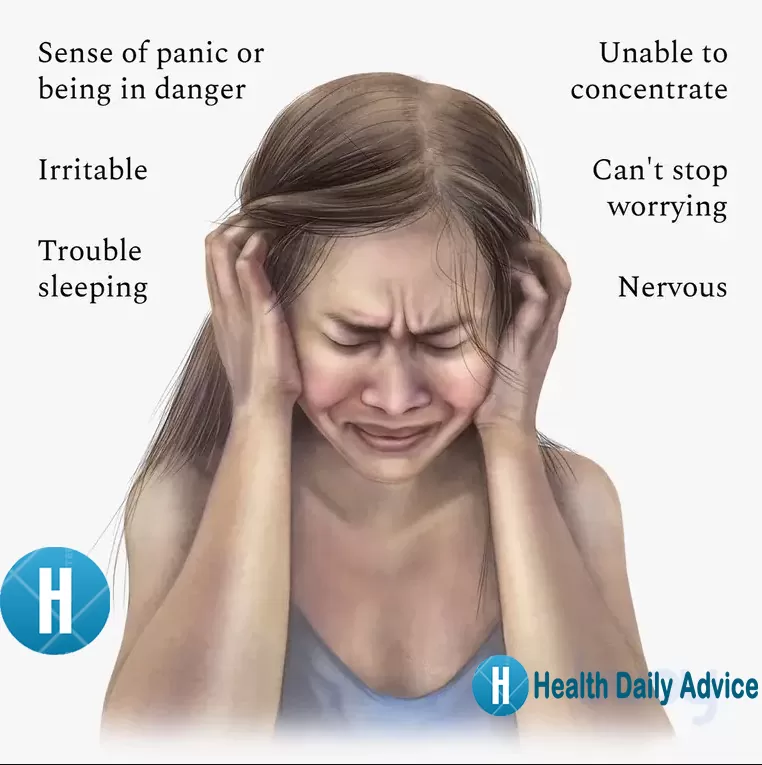Introduction
In this post, we delve into the often overlooked aspects of anxiety, shedding light on nine things that are seldom discussed but play a crucial role in the daily lives of those grappling with anxiety disorders. As someone who has navigated the turbulent waters of anxiety, particularly social anxiety, I can attest that the journey involves more than meets the eye.
Anxiety, beyond its apparent manifestations, is a complex interplay of emotions and physiological responses. It goes beyond the stereotype of fleeting worry, encompassing aspects that impact our bodies, minds, and relationships. Understanding these nuances is essential for a comprehensive approach to anxiety management.
Anxiety Disorders: Unmasking the Hidden Struggles
Before we dive into the specifics, let’s recognize anxiety disorders for what they truly are – intricate challenges that extend beyond mere mental unease.
1. Going Bathroom Frequently: The Unseen Toll
One seldom-discussed facet of anxiety is its impact on bodily functions. Anxiety can significantly increase the frequency of bathroom visits, affecting both urination and bowel movements. This often-overlooked consequence can be incredibly frustrating, adding an extra layer of discomfort to an already challenging situation.
2. Disconnect with Yourself: Trusting the Untrusting
The erosion of self-trust is a subtle yet profound consequence of anxiety. It casts doubt on our intuition and gut feelings, fostering a disconnect with ourselves. Rebuilding this trust becomes a crucial aspect of the journey towards anxiety recovery.
3. Physically Painful: Beyond the Mind
Anxiety is not confined to the realm of thoughts; it manifests physically. From chest pains to headaches and tummy aches, the physical toll can be overwhelming. Acknowledging the physical aspects of anxiety is vital for a holistic understanding.
4. Suspicious: The Paranoia Within
Anxiety breeds suspicion, making even benign interactions seem like potential threats. Trusting others becomes a herculean task, highlighting the need for empathy and understanding from those who support individuals dealing with anxiety.
5. Feel Sorrow: Counting the Cost
Regret and sorrow accompany anxiety when one realizes the time and happiness lost due to its pervasive influence. Acknowledging this emotional toll is a step towards healing and moving forward.
6. Feel Performance: The Anxiety Act
Every conversation becomes a tightrope walk, a performance where authenticity is overshadowed by the fear of judgment. Recognizing this aspect is crucial for fostering genuine connections amidst the challenges posed by anxiety.
7. Make Your Ping-Pong: The Dilemma of Seeking Reassurance
Anxiety often leads to a constant back-and-forth between seeking reassurance and creating distance, creating a challenging dynamic in relationships. Understanding and addressing this behavior is essential for building stable connections.
8. Feeling Lonely: The Silent Isolation
The reluctance to share worries and fears can lead to profound loneliness. Breaking the silence and fostering open communication is vital for creating a support system that understands the intricacies of anxiety.
9. Tiring of Anxiety: The Exhaustion Quotient
Despite the fatigue that anxiety induces, finding respite can feel elusive. Recognizing the need for self-care and understanding the exhaustion that accompanies anxiety is fundamental for well-being.
Frequently Asked Questions about Anxiety
Yes, anxiety disorders are prevalent, affecting people of all ages and backgrounds. While anyone can experience anxiety, individuals with a family history of anxiety disorders, traumatic experiences, or certain medical conditions may be more susceptible.
Yes, anxiety management often involves a combination of therapeutic approaches. While medication may be prescribed in some cases, therapy, lifestyle changes, and coping strategies play a crucial role. It’s essential to consult with a healthcare professional to determine the most suitable treatment plan.
Distinguishing between everyday stress and an anxiety disorder involves considering the intensity, duration, and impact on daily life. If stressors consistently provoke overwhelming worry, physical symptoms, and impairment in functioning, it may indicate an anxiety disorder. Consulting with a mental health professional for a proper diagnosis is advisable.
Anxiety is a treatable condition, and many individuals experience significant improvement with proper intervention. While a complete “cure” might not be universally applicable, effective management strategies can lead to a fulfilling and functional life. Seeking professional help and adopting coping mechanisms are vital steps toward recovery.
Supporting a loved one with anxiety involves empathy, active listening, and open communication. Educate yourself about anxiety disorders, encourage your loved one to seek professional help, and be patient. Avoid judgment and provide a supportive environment, understanding that recovery is a gradual process.
Conclusion:
In conclusion, understanding the multifaceted nature of anxiety is crucial for fostering empathy and support. By acknowledging these nine aspects, we take a step closer to creating a society that comprehends, supports, and uplifts those navigating the labyrinth of anxiety.
Note:
So in This Post, 9 Things No One Tells You About Anxiety. What other points can you think of/have experienced? Let me know in the comments.
If you found this helpful feel free to share your experience if you can relate to these points and if you are comfortable share
For More Articles Related to Anxiety Stay Tuned To our Site: Health Daily Advice














